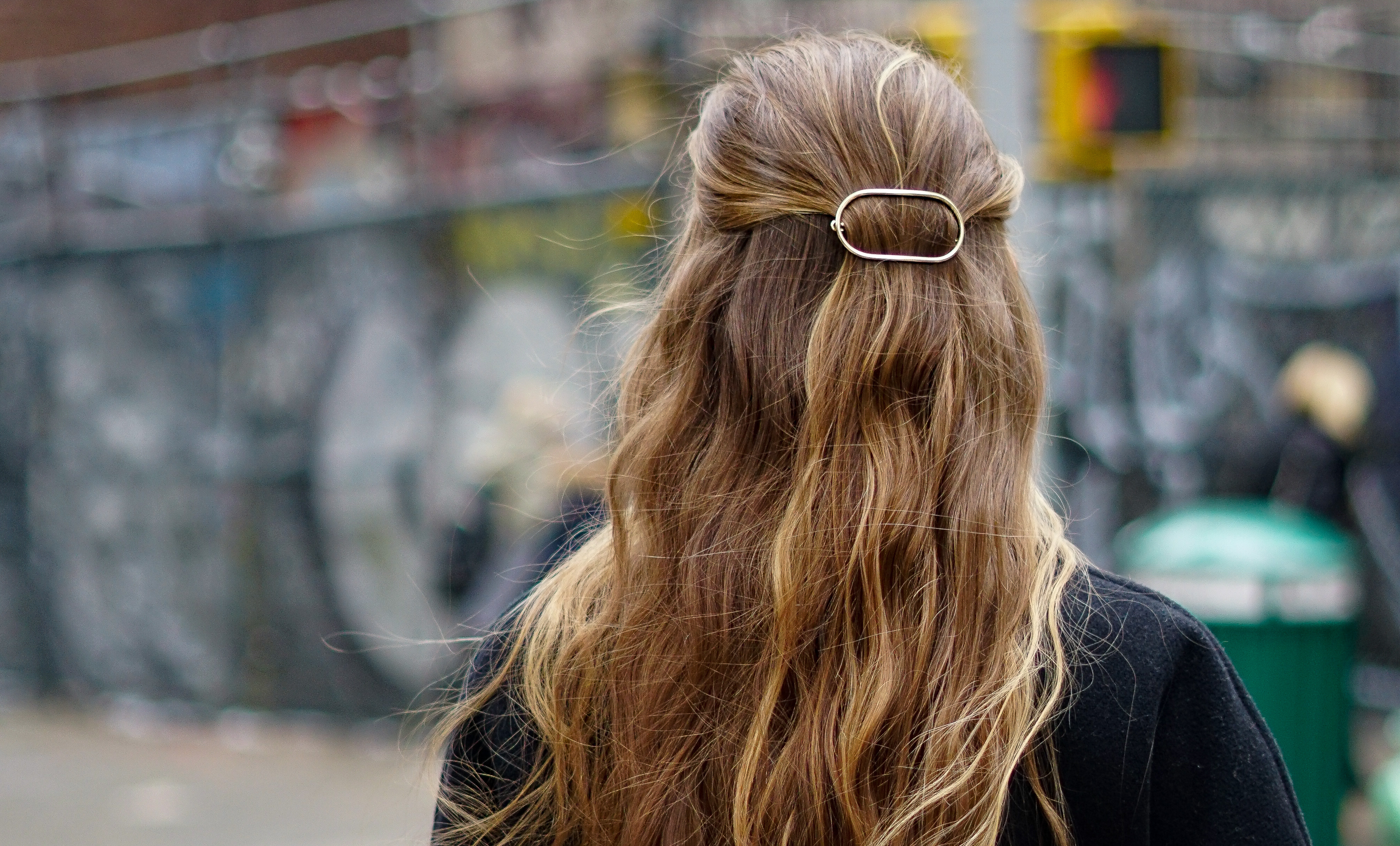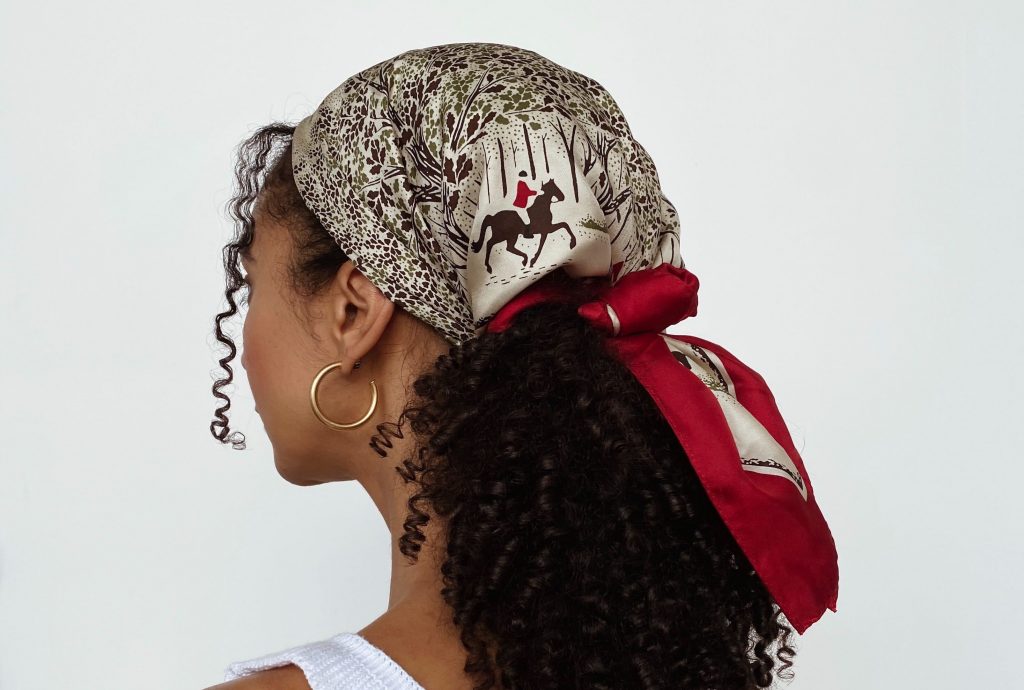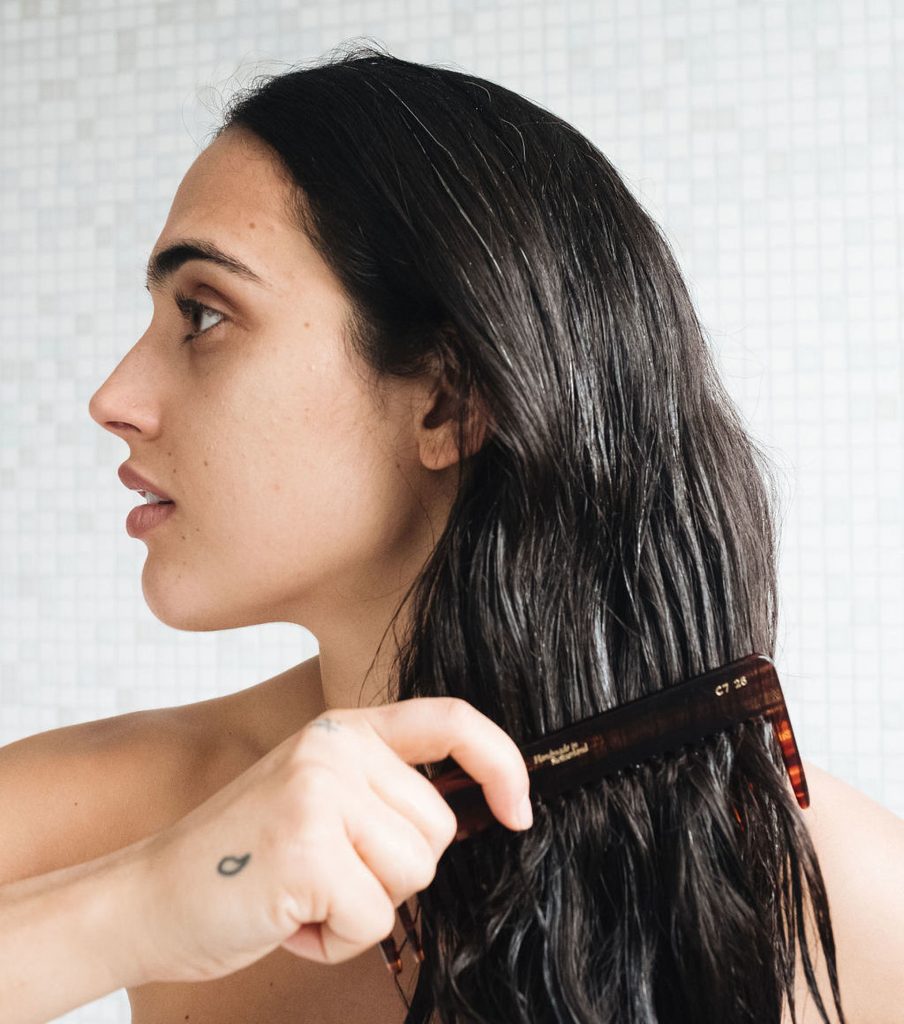Protect your scalp
Winter climates tend to be extremely dry. Combine that with even drier indoor heating, and our skin is under extreme stress. This includes the skin on our scalp. So, to combat all the dry air you’re surrounded by, be sure to drink plenty of water because if your body is dehydrated, your skin and hair will be, too. Also, be on the lookout for products that prioritize scalp health and include ingredients like prebiotics, to create a balanced ecosystem on the scalp, Pro-Vitamin B5 for extra hydration and Vitamin F to strengthen skin and minimize water loss.
Shampoo less often
Yep, instead of washing your hair daily, opt to shampoo only two to three times a week. The reason? Because the environment can be so drying and stressful on your strands, it’s better to allow good oils to remain on hair so it retains its hydration and isn’t stripped of its natural moisture. Washing and drying your hair daily puts added stress on strands, while also making it drier and more prone to breakage and damage. And, if you’re one to let your hair air dry, know that wet hair (fresh from the shower or from wet snow falling), can freeze when temperatures dip, resulting in hair that’s brittle and breaks.
Use a leave-in conditioner
As mentioned earlier, dry outdoor air combined with dry indoor heating is a recipe for hair disaster. So, pumping your hair with much-needed moisture is the best thing you can do to help it survive a winter snowstorm. Ingredients are once again key, so be on the lookout for hydrating kalahari melon oil, strengthening grape seed oil and smoothing fermented rice water. Spritz leave-in conditioner over wet or dry strands and then comb it through to ensure that the product is evenly distributed. Your hair will be left feeling soft, smooth and knot-free.
Incorporate a hair oil
Before washing your hair, use a hair oil as a pre-treatment. Oils are packed with vitamins and nourishment to keep hair strong, shiny and less subject to the effects of harsh, snowy winter weather. Beech and rosehip oil will boost your hair’s moisture levels while chicory and Barbary fig oil will nourish strands. Add in some Maracuja oil and you’re covered on the damage repair front, too. Simply distribute a few drops of oil over damp or dry hair from mid-shaft to ends and your strands will be moisturized and protected from the elements.
Ditch the dryer
For the same reason you should shampoo less frequently, you’ll want to minimize how much you use a hair dryer, as well. But, if losing your dryer seems to mark a season of bad styling days, opt for a diffuser attachment. You’ll still be able to smooth and dry your hair, but the diffuser helps to target the air flow and helps to make sure it doesn’t disturb your hair pattern (especially if you have curly or wavy hair), or cause frizzing.
Shield your strands
When heading outdoors in the snow, try to keep your hair under wraps as best you can. That means wearing a hat that protects as much hair as possible. Or, choosing a style that will pull hair back, like a twist into a knot, bun or braids. Your goal is to guard your strands from the damage dry air can do, the freezing and breaking wet snow can cause and any knots or frizz that may plague your strands.
That was a lot of information packed with a lot of product mentions, but the good news is that Prose has you covered on all fronts. Get started with your custom formula and routine here.





